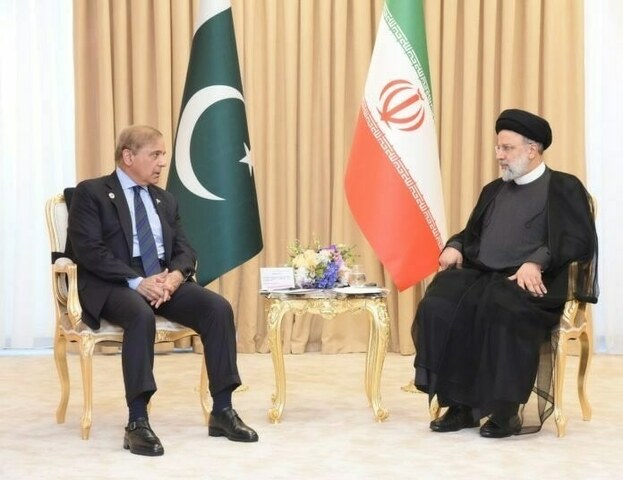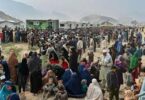Prime Minister Shehbaz Sharif and Iranian President Seyed Ebrahim Raisi have jointly inaugurated the Mand-Pishin border sustenance market aimed at boosting bilateral trade and a 100MW power transmission line, that will provide electricity to Gwadar. During his address to the inauguration ceremony, President Raisi congratulated the Government of Pakistan on the completion of the 100MW power transmission project that would beget employment opportunities for people in the area. The Iranian President expressed Iran’s desire to work with Pakistan in the energy sector and noted that border markets will help increase the bilateral trade between both countries. Prime Minister Shehbaz termed it a great day for Pakistan-Iran friendship, that will prove a milestone for the development of the two countries. According to him, Pakistan and Iran had decided to finalize the Free Trade Agreement (FTA) soon to exploit the immense potential in trade and investment, while the setting up of the various border markets has opened a new era of cooperation and development between Islamabad and Tehran.
Pakistan and Iran are two brotherly Muslim countries and their bilateral ties are rooted in historical linkages, based on religious, cultural, linguistic, and spiritual bonds. Iran was the first country who recognized an Independent Pakistan and their bilateral relations remained cordial and supportive during the 60s and 70s. After the 1979 Islamic Revolution of Iran and the emergence of a Shia Muslim Conservative government in Tehran, the bilateral relations were largely marred by the Shia-Sunni sectarian rivalry between the Kingdom of Saudi Arabia and Iran while it was equally affected by the US-Iran tussle started after the US Embassy hostage crisis in the aftermath of the Islamic revolution in late 1979. Despite the tremendous potential for bilateral cooperation in trade, energy, tourism, industry, aviation, fisheries as well as defense and security, both nations failed to unlock those opportunities because of external pressure, global conspiracies, and local political reasons throughout the past. Similarly, the Pak-Iran gas pipeline project became prey to the US-Iran rivalry and could not be completed for over a decade while the volume of bilateral trade between the two nations hardly touch $ 293 million with Pakistan’s share of less than 10%.
Both neighbouring nations signed an agreement in 2012 to set up border markets in designated border locations to boost economic activities and curb the illegal smuggling of goods and commodities. Meanwhile, both nations also agreed to enhance their bilateral cooperation regarding border management, against terrorism, drug trafficking, and across-border illegal movement of miscreants that pose an equal risk to their security. Apparently, there is a serious lack of will, legal or administrative issues on either side as the magnificent bilateral project of border markets struck a delay and it took a decade to become a reality. As for Pakistan, the South Asian nation failed to secure its economic and strategic interests with respect to Iran because of the global sanctions and Saudi-Iran rivalry as Pakistani leaders always pursued a policy of avoidance instead of mitigation that badly hurt the public interest in both nations.
Currently, the political leadership of both neighboring nations has expressed their resolve to boost their bilateral ties, trade, tourism, and economic cooperation, while border trade and energy sectors had been identified as common priorities and completion of the construction work of the Pak-Iran gas pipeline is likely to resume in the near future. Both nations also agreed to jointly work in the solar energy domain, while the Mand-Pishin border sustenance marketplace and other such initiatives are expected to provide a thriving platform for increasing cross-border trade, fostering economic growth, and opening up new avenues of opportunity for local businesses and villagers in far-flung border areas. In fact, leaders are all time ready to grasp optimum benefit for their people but bureaucracy is stubborn and failed to pursue national objectives, resultantly most projects of public interest gradually failed and became unproductive, and burdensome. Hopefully, these projects will unleash development, open up business and trade, and will provide employment opportunities contributing to the future prosperity of the people of Balochistan and the entire region. However, that dream will realize only due to continued commitment, persistent work, and loyalty of the leaders, bureaucracy, and the public to get maximum and long-term benefits from it. Both governments must overcome political, legal, and fiscal challenges to successfully accomplish major energy, trade, and connectivity projects to revive the economy and bring prosperity to the region.







